第155章 CHAPTER XXII.(3)
On the 11th June, having slept at the village of Abou Dome, we started at sunrise, and at 9 A.M. we reached the bank of the river, opposite to Khartoum. We were delighted with the view, as the morning sun shone upon the capital of the Soudan provinces;the grove of date trees shaded the numerous buildings, their dark green foliage contrasting exquisitely with the many coloured houses on the extreme margin of the beautiful river; long lines of vessels and masts gave life to the scene, and we felt that once more, after twelve months of utterly wild life, we had arrived in civilization. We had outridden our camels, therefore we rode through a shallow arm of the river, and arrived upon an extensive sandbank that had been converted into a garden of melons; from this point a large ferry-boat plied regularly to the town on the south bank. In a few minutes we found ourselves on board, with our sole remaining horse, Tetel, also the donkeys that we had purchased in Berber before our expedition, and our attendants. As we gained the centre of the river, that was about 800 yards broad, we were greeted by the snort of three of our old friends, the hippopotami, who had been attracted to the neighbourhood by the garden of water-melons. We landed at Khartoum, and, having climbed up the steep bank, we inquired the way to the British Consulate.
The difference between the view of Khartoum at the distance of a mile, with the sun shining upon the bright river Nile in the foreground, to the appearance of the town upon close inspection, was about equal to the scenery of a theatre as regarded from the boxes or from the stage; even that painful exposure of an optical illusion would be trifling compared with the imposture of Khartoum; the sense of sight had been deceived by distance, but the sense of smell was outraged by innumerable nuisances, when we set foot within the filthy and miserable town. After winding through some narrow dusty lanes, hemmed in by high walls of sun-baked bricks, that had fallen in gaps in several places, exposing gardens of prickly pears and date palms, we at length arrived at a large open place, that, if possible, smelt more strongly than the landing spot. Around this square, which was full of holes where the mud had been excavated for brickmaking, were the better class of houses; this was the Belgravia of Khartoum. In the centre of a long mud wall, ventilated by certain attempts at frameless windows, guarded by rough wooden bars, we perceived a large archway with closed doors; above this entrance was a shield, with a device that gladdened my English eyes: there was the British lion and the unicorn! Not such a lion as I had been accustomed to meet in his native jungles, a yellow cowardly fellow, that had often slunk away from the very prey from which I had driven him, but a real red British lion, that, although thin and ragged in the unhealthy climate of Khartoum, looked as though he was pluck to the backbone.
This was the English Consulate. I regarded our lion and unicorn for a few moments with feelings of veneration; and as Mr.
Petherick, the consul, who was then absent on the White Nile in search of Speke and Grant, had very kindly begged me to occupy some rooms in the Consulate, we entered a large courtyard, and were immediately received by two ostriches that came to meet us;these birds entertained us by an impromptu race as hard as they could go round the courtyard, as though performing in a circus.
When this little divertissement was finished, we turned to the right, and were shown by a servant up a flight of steps into a large airy room that was to be our residence, which, being well protected from the sun, was cool and agreeable. Mr. Petherick had started from Khartoum in the preceding March, and had expected to meet Speke and Grant in the upper portion of the Nile regions, on their road from Zanzibar; but there are insurmountable difficulties in those wild countries, and his expedition met with unforeseen accidents, that, in spite of the exertions of both himself, his very devoted wife, Dr. Murie, and two or three Europeans, drove them from their intended path. Shortly after our arrival at the Consulate, a vessel returned from his party with unfavourable accounts; they had started too late in the season, owing to some difficulties in procuring boats, and the change of wind to the south, with violent rain, had caused great suffering, and had retarded their progress. This same boat had brought two leopards that were to be sent to England: these animals were led into the courtyard, and, having been secured by chains, they formed a valuable addition to the menagerie, which consisted of two wild boars, two leopards, one hyaena, two ostriches, and a cynocephalus or dog-faced baboon, who won my heart by taking an especial fancy to me, because I had a beard like his master.